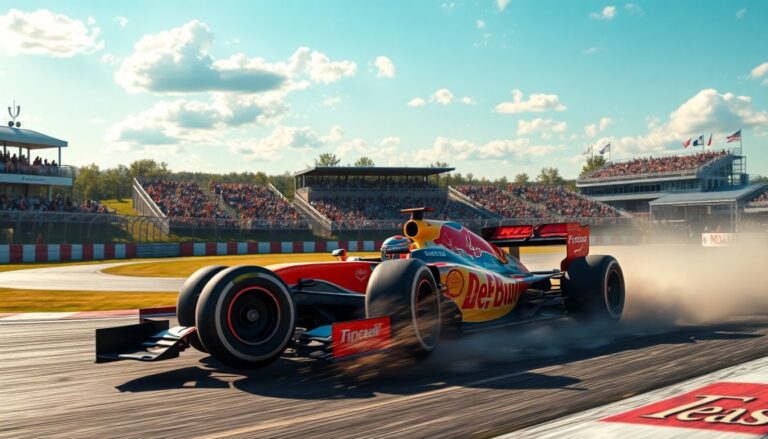Argomenti trattati
Motor sport is a dynamically evolving industry that engages audiences through its combination of speed, technology, and competition. From Formula 1 to NASCAR, racing transcends mere fast cars; it encompasses the complex strategies and human emotions that fuel both drivers and teams. The thrill of a race day, the roar of engines, and the intense atmosphere as competitors strive for victory create a unique experience. This article explores the various dimensions of motor sport, highlighting its appeal and the factors that contribute to its lasting popularity.
The Evolution of Motor Sport
The origins of motor sport date back to the late 19th century, when the first automobile races took place. These early events highlighted the technological advancements of the era and set the stage for future competitions. Over the years, motor sport has undergone significant evolution, integrating new technologies, enhanced safety protocols, and innovative strategies for engaging fans. The emergence of professional racing leagues and lucrative sponsorship deals has transformed racing into a global phenomenon.
Key Milestones in Motor Sport History
Key milestones in the evolution of motor sport include the establishment of the Grand Prix format in the early 1900s, which laid the groundwork for modern racing leagues. The creation of the Fédération Internationale de l’Automobile (FIA) in 1904 marked a pivotal moment, as it provided necessary regulation for the sport. Furthermore, the rise of NASCAR in the United States during the 1940s and 1950s introduced stock car racing to a wider audience, significantly increasing its popularity.
The Elements of a Successful Racing Team
Building a Successful Motorsport Team
A successful motorsport team relies on several critical elements: talent, technology, and teamwork. Drivers must possess extraordinary skill and mental fortitude. The pressures of high-speed racing can be overwhelming. However, the role of the engineer and the technical team is equally vital. They are responsible for optimizing the car’s performance on the track. This requires a profound understanding of aerodynamics, tire management, and engine tuning, all of which contribute significantly to a car’s success.
Driver Training and Development
Driver training represents a demanding journey that often commences in childhood. Aspiring race car drivers typically initiate their careers in karting before advancing to higher levels of competition. They engage in comprehensive physical and mental training aimed at improving reaction times, focus, and stamina. The psychological dimension of racing plays a crucial role; drivers must develop the ability to manage stress and make quick decisions that can significantly influence race outcomes.
The Fan Experience in Motorsport
The Thrill of the Motor Sport Fan Experience
One of the most captivating aspects of motor sport is the fan experience. Enthusiasts flock to racetracks worldwide to witness the exhilaration firsthand. The atmosphere is electric, with fans cheering for their favorite drivers, engaging in tailgating festivities, and participating in fan zones filled with activities. Technology has significantly enhanced this experience, with live broadcasts, social media interactions, and mobile apps providing real-time updates and behind-the-scenes content.
Improved Accessibility and Inclusivity
Moreover, the accessibility of motor sport has improved over the years. Events like Formula E promote sustainability and electric racing, appealing to a younger audience. Additionally, grassroots racing events allow fans to experience the thrill of racing at a more local level. The inclusion of women in racing, exemplified by initiatives like the W Series, has also broadened the sport’s appeal, making it more inviting for diverse audiences.
The Future of Motorsport: Embracing Change for Continued Success
As the world of motorsport continues to evolve, its ability to adapt to new technologies and changing societal norms will be crucial for long-term success. The integration of innovations such as autonomous vehicles and electric racing signifies a shift that aims to attract a new generation of fans and competitors.
Motorsport is not just about speed; it is a complex interplay of skill and strategy. This thrilling spectacle transcends generations, appealing to enthusiasts from diverse backgrounds. As we look to the future, the evolution of motorsport will unfold in intriguing ways, continuously captivating audiences worldwide. The question remains: how will these changes redefine the landscape of competitive racing?

